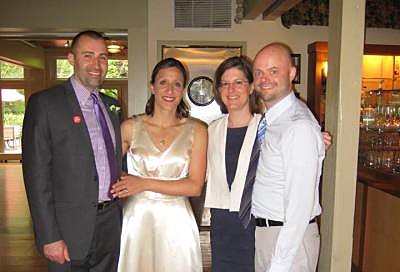Kaydee Kirk (’98-’99) and Peter Spuit (’99-’00) are two Lutheran Volunteer Corps alumni who live in Minneapolis, Minnesota. Kaydee is a graduate of Augsburg College and lived in Dag Hammarskjold House during her LVC year in Washington, D.C., and Peter is a graduate of Luther College and lived in Imani House during his LVC year in Minneapolis. We caught up with the two of them recently to hear what they’ve been up to and how LVC has continued to impact their lives. Both consider their service year with LVC to be transformational and greatly appreciate the many ways that LVC shaped them.

Can you speak a little bit about each of your placement organizations where you worked during your LVC year?
Peter: “Southeast Asian Ministry is a faith-based refugee services provider. They didn’t actually help resettle refugees, but they provided additional support to refugees who were settling in the Twin Cities area, particularly Southeast Asian immigrants and refugees. My role was mainly to reach out to churches and solicit their support with financial gifts or volunteering in the refugee services program. Most of the staff were representatives from the Southeast Asian communities we were serving. I think working with people of a different ethnic background was a really powerful experience for me. It was through my experience in LVC that I had more direct encounters with people that were different than I was. It was a move from something that was largely intellectual – openness, pluralism, and multiculturalism – to more firsthand experiences.”
Kaydee: “National Council of La Raza (NCLR) is a large, national non-profit Latino-Hispanic advocacy organization. I grew up in the Twin Cities, I went to school here, and I had a strong desire to experience something other than the Midwest. So I ended up in D.C., which was a culture change. I was a minority in the organization working with largely Latino coworkers and that was a new and eye-opening experience. I had previously traveled and studied abroad, but it was really different being a minority in the United States. My greatest learning perhaps however was through the intentional community. I was surprised there was just as much, if not more, growth on a personal level as there was on a professional level.”
What is one of your favorite memories of being in LVC?
Kaydee: “There were many fun times with my housemates and the other LVCers. We connected with other non-LVC volunteers in the city. We were hanging out with the Jesuits and the Mennonites and there was was a larger sense of the volunteer community. In terms of my work position, one amazing and unexpected opportunity that I had was attending a Presidential, educational policy briefing at the White House on behalf of NCLR. It was really cool to be there.”
Peter: “One is when I first met my housemates — the good energy that was there among the five of us. In our year, we actually did our orientation in Washington, D.C. Frankly, that was memorable in itself. The whole service corps being together from all parts of the country and being sent out again to different parts of the country. In meeting my housemates, it was really meaningful to meet a group of peers who, like me, felt committed to being of service and who like me were interested in the values of that organization. It was powerful to quickly feel on the same page with four strangers.”
What are some specific skills have you developed as a result of serving with LVC?
Peter: “LVC changes your worldview or perspective. Intentional community and justice making, especially how it connects to our faith, those things still really affect me and my life today. As far as living simply, I learned skills and perspectives there. I look at “needs” versus “wants”. I look at the things I purchase and feel more of an awareness of gratitude.
Something that I really valued was open and frank conversations about our differences surrounding faith. The five of us really did have differences in faith. Not all of us were Lutheran or Christians. All of us were religiously curious. It was a skill to dialogue across differences, especially as it relates to faith. We seemed to do it with respect, curiosity, and openness rather than judgement. As someone who works in a Lutheran church today, I still really benefit from that perspective..”
Kaydee: “For me, LVC was very formative in my values. It was an experience that I had been yearning for. I was struggling to find where I could explore the intersection of social justice and faith. The three tenets of LVC – community, simplicity, and social justice – have really shaped me as a person.
I also grew in my interpersonal communications and relationship-building skills. You make a promise to each other – a covenant – to be intentional in working through issues the best you can. There are elements of that you take with you in your life.”
What are some specific ways you learned to live sustainably through LVC?
Kaydee: “There was an intentionality in LVC about things like energy use, for example, how you choose to travel. I remember it being a significant decision to travel to DC by train versus airplane for environmental reasons, something that had never occurred to me before. Since LVC, for example, I’m more mindful of if or when I turn on the heat and how much I use. Being mindful of energy — water, electricity, heat — all those things I think about at some level and LVC helped cultivate this.”
Peter: “The tenets of justice, intentionality, and simplicity imply thought about sustainability. As you make choices, especially your consumer choices, you should be aware of the impact. We learned about making food stretch and not wasting what you have.”
What are some specific ways you explored your spirituality at LVC?
Peter: “I liked the intentionality of LVC encouraging faith nights. In terms of faith, one of the most important things of LVC is linking justice with faith, that they are inseparable in a way. To be a person committed to faith is a person committed to justice.”
Kaydee: “My housemates and I held faith nights together, though admittedly it was not always easy since all six of us were in different places with spirituality. In terms of the larger LVC community, I appreciated meeting and connecting with many other people who were also very much interested in actively exploring and living out issues of faith and justice.”
What part of your experience with LVC has changed you the most?
Kaydee: “I think of the three tenets – community, simplicity, and social justice – and I had most personal growth in terms of the intentional community experience. I truly thought that my housemates and I would’ve all naturally gotten along so easily. But, there were plenty of challenges and we certainly had a lot of good growth that year. LVC helped me learn the importance of building relationships and trust.”
Peter: “Given all that I’ve said, the most important is that my LVC experience helped me realize that many people face difficulties that I don’t face and that I have privileges that many people don’t share and are unaware of. People faced with challenging circumstances are people who work hard, want a good life, and want basic fairness. It affirmed for me that the support people may need from public, social, and community programs are entirely justified and worth supporting. As a community and a society, we need to provide that support.”
Why do you donate to LVC?
Peter and Kaydee: “LVC is really important to us, and we give back to LVC because we are very grateful for the experience that shaped us so much. But we also give to LVC because we know what impact it can have on people’s lives. We know how LVC can deeply affect LVCers, as well as the people they serve. We give to LVC to help make that happen for more LVC Volunteers so that more people are living lives of service and are shaped by those values.”
How did LVC impact your life?
Kaydee: “I’ve had great friends from LVC since that formative year. There was the wonderful community we had in D.C. Shortly after LVC I moved to Chicago and I plugged into the LVC network there. That was very valuable. When people ask me about experiences I’ve had or things that have shaped me, I take pride in saying I did a year of service with LVC. It was a unique experience and has strengthened my values. Frankly, I could probably use some more LVC in my life right now! I want to be living with that conviction. Our lives have changed now that we’re parents. How can I better instill those values in my two children and in my community? I could use an LVC refresher!”
Peter: “I would say one major thread that has persisted for me is living with more intentionality and realizing that we live and express our values through our actions and through our voices. I would say LVC taught me the importance of being intentional and being rooted in values. The legacy of LVC on my life is the intentionality of values.”


